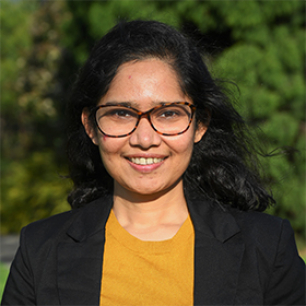Dr Tabassum Rahman presented at the NDARC Webinar Series on Thursday 27 October, 2022.
This webinar explored ways of empowering and culturally appropriate smoking cessation support for Indigenous women.
Indigenous women are highly motivated to quit smoking during pregnancy. However, very few of them remain abstinent after childbirth. This webinar will present results from research that explored factors that influence Indigenous women’s smoking behaviour during pregnancy and postpartum periods using a socioecological model. The results revealed that smoking cessation care was more helpful for Indigenous women when it was informative and empowering. Such care provisions, however, were limited by time, low presence of the Indigenous workforce, and dedicated funding. Therefore, systemic changes are required to help Indigenous women to quit smoking during pregnancy and the postpartum periods, and maintain abstinence in the long term.
About the speaker
Tabassum Rahman is an early career public health researcher who has worked on a range of topics across health research such as women’s health and wellbeing, refugee health, behavioural change, social determinants of health and health equity. Some of her research areas include violence against women, mistreatment of women during childbirth, mental health, and smoking cessation. She has a background in sociology and developmental studies. Tabassum undertook her PhD research in Indigenous smoking cessation with an aim to explore how smoking cessation for pregnant and postpartum Indigenous Australian women can be made more informative, empowering, and culturally safe and respectful. She has worked for the International Centre for Diarrhoeal Disease Research, Bangladesh and Monash University, Australia and is currently working as a Research Fellow in the Indigenous Epidemiology and Health Unit, the University of Melbourne. In this role, she is working on a number of research projects focussing on the health and wellbeing of Indigenous children and adolescents. Tabassum has a mixed-methods research background, with a strong focus on qualitative methods, and integrating quantitative and qualitative evidence in a complementary manner. Tabassum is interested in the area of migrant health and wellbeing which she aspires to explore in future.


